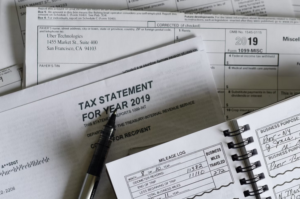Can Quick Loans Improve Your Credit Score? Here’s the Truth
- by Victor Richmond
- 2 years ago
- 0 comments

If your credit score is going crazy and getting lower and lower, it’s time to make a smart financial move. Improving your credit score actually has lots of paths you can choose from. One popular choice is getting quick loans. You might wonder, can these fast solutions really give your credit a boost? The answer isn’t as simple as yes or no.
Getting a pikalaina heti tilille can have both positive and negative effects on your credit health. In this blog post, we’ll explore how on-time payments can help raise your score, the benefits of diversifying your credit mix, and the consequences of missing payments. Plus, we’ll discuss whether using a quick loan to pay off existing debt could be a smart move for you. Let’s dive straight into the details.
On-Time Payments Boost Your Score
One of the simplest ways to enhance your credit score is through on-time payments. Every month, when you make timely payments on a quick loan, you’re ultimately sending a positive signal to credit bureaus. These punctual payments show that you’re responsible and reliable with borrowed money.
Over time, this consistency builds trust in your financial habits. Even a single late payment can have lasting consequences. A missed deadline might drop your score significantly and undo months of effort. It’s crucial to stay organized and set reminders if needed. By prioritizing these payments, you not only maintain good standing but also pave the way for future loans or credit opportunities.
Diversifying Your Credit Mix Can Benefit Your Credit Score
A healthy credit score often hinges on your credit mix. This refers to the unique variety of credit accounts you hold, such as revolving accounts like credit cards and installment loans like personal or quick loans. When lenders see a diverse portfolio, they’re more likely to view you as a responsible borrower. It signals that you can manage different types of debt effectively. That said, adding a quick loan to your mix might eventually help improve your overall score if managed well. This shows creditors you’re capable of handling various financial responsibilities.

Missing Payments on a Quick Loan Can Harm Your Credit Score
Without a doubt, when you take out a loan, lenders expect timely repayments. Failing to meet these obligations signals financial instability. Each missed payment gets reported to credit bureaus. This negatively impacts your credit report and can lower your score significantly. A single late payment might seem minor but its effects linger for years.
Moreover, the longer you wait to make that payment, the worse it gets. Late fees accumulate, and the lender may escalate their collection efforts. This not only adds stress but could further damage your financial reputation. In short, missing payments is a slippery slope that affects more than just one aspect of your finances; it influences future borrowing opportunities as well.
Using the Loan to Pay Off Credit Card Debt Can Lead to a Higher Credit Score
Using a quick loan to pay off credit card debt can also be a strategic move for your financial health. Credit cards often carry high interest rates, and consolidating that debt into a single loan may reduce the overall interest you pay. When you pay off those balances, your credit utilization ratio decreases. Lenders typically prefer borrowers who use less of their available credit. A lower ratio signals responsible usage, which can give your score a boost. Moreover, having fewer open accounts means managing payments becomes simpler. This streamlined approach makes it easier to stay on top of deadlines and maintain an on-time payment history—another critical factor in improving your score.
So, should you get a quick loan? Before answering to this question, you need to weigh the pros and cons carefully. Whether or not you should get a quick loan depends on your individual financial situation and goals. Just be sure you’re informed and ready for the commitment involved with taking out such a loan—your credit future might depend on it.



